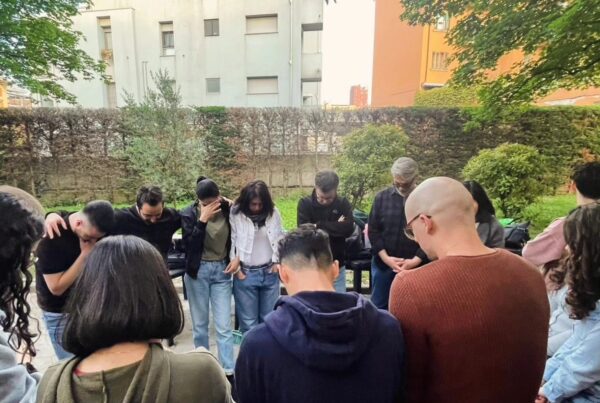A worship leader’s job is to get people singing of the goodness of the Lord. God’s people have much to celebrate, so lifting our voices in worship is the delight of all whose hearts have been set on the affections of Jesus.
Building a worship team to help us lead out in worship is good. But developing that team can be a difficult job. This may seem short-sighted considering the ever-growing worship industry full of monthly subscriptions to dynamic new songs, training videos, and angelic, ambient tracks to make you sound like the best worship band YouTube has to offer. Worship teams have never sounded better, but can they lead their churches in worship?
I’ve been blessed to be part of worship teams in hopeful school-gym church plants, international churches, suburban churches, and hipster megachurches. I’m thankful for each of these experiences as they helped me identify trends and strategies in all contexts for developing a worship team. I’m by no means an expert, but I’ve learned 5 tips to help worship pastors develop their teams.
1. Know What You’re Working With
I once asked a professional race car driver, “If I had the opportunity to jump into a race but only had a day to practice, what would I do?” He gave a simple answer that quickly shut down my millennial overconfidence: “Know your car. You have to know what the car can and will do in almost every situation or you can’t race.” Likewise, you, worship leader, need to know what musicians and talents are in your church and what they’re capable of.
Success isn’t matching or surpassing the worship experience of that team on YouTube. Success is being a great steward of your volunteers by developing what you’ve been given all for God’s glory.
God has sovereignly given you the people, budget, and equipment to fulfill his desires for your church. Success isn’t matching or surpassing the worship experience of that team on YouTube. Success is being a great steward of your volunteers by developing what you’ve been given all for God’s glory.
2. Get Your Team Working Together
Once you know what you’ve got, get it working together for the common purpose of leading your church in making much of Jesus. Unite them in love for the church. Unite them in celebration of what Christ has done. The highest good your worship team can pursue is not found in pitch and tone, but in loving God and loving his people. Get your team working together to joyfully serve the church they love.
A music pastor from a large church once told me the secret to keeping music teams united: meals, meals, meals. He expressed the importance of making room in your budget for consistent food and fellowship with your team, and if you don’t have a budget, potluck it. If it worked for the early church, it just might work for us.
3. Progress Your Team
An important part of developing your worship team is discipling them to grow in the grace and knowledge of Jesus (2 Pet. 3:18). You want their love and joy in Christ to be contagious, to spread throughout your congregation. Worship leaders who can connect and communicate great theology during a pivotal moment of a worship set are a blessing to the church. Bonding over biblical truths and discussing how to apply them to your context produces growth and unity in your team.
Strive to find great content to read together. If you’re looking for a starting point, Bob Kauflin’s book, Worship Matters, is excellent. But don’t feel forced to only read worship-based content. Consider going through a book of the Bible or reading Packer’s Knowing God, Bryan Chapell’s Christ-Centered Worship, or Andrew Peterson’s Adorning the Dark.
4. Give Your Team Practice
If you want worship leaders who can command the stage, read the room, and make quick decisions, then you’ll need to give them plenty of practice. Just as great quarterbacks aren’t made by only getting to play the last four minutes of each game, great worship leaders aren’t produced by only leading a song every now and then.
The highest good your worship team can pursue is not found in pitch and tone, but in loving God and loving his people.
Those who develop the fastest are the ones who’ve led countless youth group events, prayer nights, and small group worship sessions in living rooms. Your leaders need lots of reps where they can visualize a set, prepare, communicate, complete, and receive feedback on it.
5. Repeat
As you lead your worship team through these stages of development, which, Lord willing, produces new worship leaders, your job is not done. Now it’s time to do it all again. Repeat the process and repeat it again. Keep investing in worship teams by developing new leaders for new churches.
It’s a unique privilege to lead Christ’s church in singing their gratitude for his matchless mercy and grace on undeserving people. Developing others to participate in this honor takes time and energy. May God give you a passion for corporate worship that glorifies him and prepares his people to enjoy him forever.
Editor’s Note: We believe the local church is God’s primary mission strategy on earth. Therefore, being faithful to the Great Commission means being passionate about church planting. As we near the end of the year, will you consider supporting global church planting by giving to acts29.com/give?










